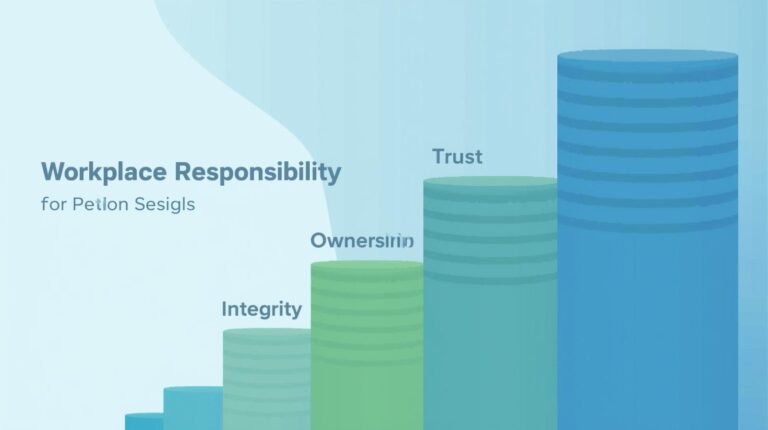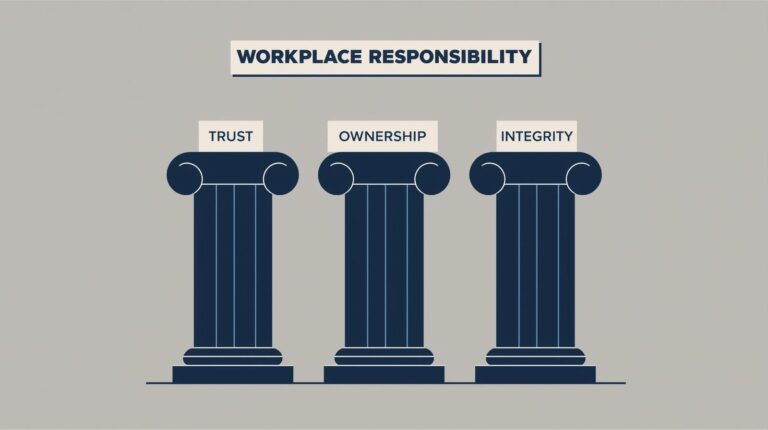What is Accountability? Building a Culture of Responsibility in the Workplace
Accountability is one of those words we hear tossed around in corporate meetings, performance reviews, and leadership seminars. But when you stop to ask, what does accountability actually mean?, the answers can be surprisingly vague. Some people associate it with blame. Others think it’s about micro-managing. And still others believe accountability is a “manager’s job” rather than something they themselves need to carry.
The truth is, accountability is far simpler—and far more powerful—than most people realize. At its core, it means taking ownership of your actions, performance, and behavior, and following through on your commitments. It’s not about pointing fingers or shaming someone when things go wrong. It’s about creating a culture where every individual feels responsible for the outcomes of their work and is willing to step up when challenges arise.
In this article, we’ll unpack what accountability really is, how it differs from blame, why personal accountability is the foundation of all workplace success, and how organizations can build accountability into their culture.
Defining Accountability
Let’s start with a clear definition. Accountability is the willingness to accept responsibility for your actions and the results that follow—good or bad.
In a workplace context, this means:
Meeting deadlines you committed to.
Owning up when you make a mistake.
Communicating honestly about progress, challenges, or roadblocks.
Holding yourself to the standards of performance, behavior, and values that your company upholds.
Think about accountability like this: if you make a promise to a client, your manager, or even yourself, accountability is the bridge between your intention and your delivery. Without it, good intentions fizzle into excuses. With it, trust is built and results follow.
Personal Accountability: Where It All Begins
Accountability starts with the individual. It’s tempting to think of it as something managers enforce, but the truth is that no amount of external oversight can substitute for personal accountability.
When you take personal accountability, you:
Stop shifting blame. Instead of saying, “I couldn’t finish this project because the other department was late,” you ask, “What could I have done to move things forward despite the delay?”
Own your growth. Instead of waiting for your boss to push you, you set your own standards and actively look for ways to improve.
Take initiative. Accountability drives people to act without being constantly nudged or supervised.
One of the most respected traits in any professional is the ability to say: “This is my responsibility, and I’ll see it through.”
Being Held Accountable: Why It Matters
Personal accountability is powerful, but workplaces thrive when there’s also a system of shared accountability. Being held accountable doesn’t mean you’re being punished—it means you’re part of an environment where commitments matter.
Consider this example:
Two employees commit to delivering a report by Friday.
One submits late, citing “how busy the week was.”
The other manages to deliver on time by asking for support midweek.
The difference isn’t workload—it’s accountability. The first employee treated accountability as optional. The second recognized the importance of following through and sought help to make it happen.
When people know they’ll be held accountable—whether by peers, managers, or clients—they’re more likely to take commitments seriously. This strengthens trust and reliability across the entire organization.
Accountability vs. Blame
Here’s where many organizations get it wrong. Accountability often gets confused with blame. The distinction is crucial.
Blame looks backward. It focuses on finding fault and often creates fear.
Accountability looks forward. It focuses on learning, ownership, and how to do better next time.
For example:
Blame says, “You failed, and it’s your fault.”
Accountability says, “We didn’t meet the goal. What can we do differently to make sure we succeed next time?”
Blame damages morale and discourages risk-taking. Accountability, on the other hand, builds resilience and continuous improvement.
The Importance of Accountability in the Workplace
Why does accountability matter so much in professional environments? Because it’s the glue that holds everything together. Without accountability, even the most talented teams can collapse into chaos.
Here are some reasons why accountability is non-negotiable:
Trust and Reliability
Teams thrive when they can rely on one another. If you consistently follow through, your colleagues trust you—and trust is the foundation of collaboration.Improved Performance
When everyone is accountable for results, performance naturally rises. People don’t just do the bare minimum; they push for quality and consistency.Healthy Culture
Workplaces without accountability often slide into finger-pointing and excuses. By contrast, accountable cultures encourage openness, honesty, and fairness.Personal Growth
Being accountable forces individuals to reflect, adapt, and grow. It’s one of the best ways to build resilience and professional maturity.Organizational Success
Ultimately, accountability ensures that company goals are met and resources are used wisely. It’s what turns strategic plans into real-world outcomes.
A Case Study in Accountability
Consider a software development team tasked with releasing a new app feature within six weeks.
In one version of this story, no one feels truly responsible. Deadlines slip, communication falters, and when the deadline arrives, fingers point in every direction. The feature is late, and client trust erodes.
In the second version, each member takes accountability for their part. They set weekly check-ins, flag roadblocks early, and support one another. Even when challenges pop up, they adjust and stay on track. The feature launches on time, and the client is impressed.
The difference wasn’t talent or resources. It was accountability.
How to Foster Personal Accountability
So how do you strengthen accountability in your own professional life?
Be clear about expectations. Don’t leave commitments vague. If you promise something, define what “done” looks like.
Track your commitments. Use tools, calendars, or reminders—whatever it takes to keep yourself honest.
Speak up early. If you’re running into obstacles, communicate them before they become excuses.
Own mistakes. Everyone makes them. What matters is whether you step up and learn from them.
Celebrate follow-through. Recognize not just outcomes but the consistency of keeping promises.
From Individuals to Organizations: Building a Culture of Accountability
Personal accountability is step one, but the real transformation happens when entire organizations embrace accountability as a value. This involves:
Leaders modeling accountability. Managers and executives must walk the talk. If leadership excuses their own lapses, the message to employees is clear: accountability is optional.
Clear communication. Everyone needs to know expectations, deadlines, and goals.
Supportive systems. Regular check-ins, feedback loops, and transparent reporting make accountability the norm rather than the exception.
Psychological safety. Employees should feel safe admitting mistakes without fear of blame. This ensures accountability stays constructive.
Final Thoughts
Accountability isn’t about punishment. It isn’t about pointing fingers or creating fear. It’s about building a culture where commitments matter, trust is earned, and every individual takes ownership of their role.
When accountability becomes part of how you work, results follow naturally: higher performance, stronger teamwork, and a healthier workplace culture.
So the next time you hear the word “accountability,” don’t roll your eyes or assume it’s just another corporate buzzword. Remember this: accountability is the bridge between promises and results. And in the workplace, that bridge is what separates struggling teams from thriving ones.



